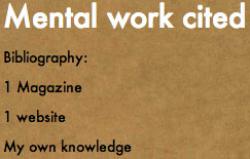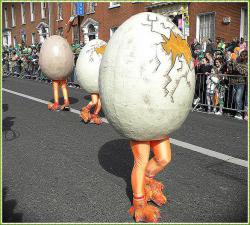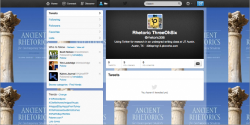
Although teaching a descriptive unit is an essential foundation for good writing, many instructors find summary tedious to teach, and especially difficult to present to students in interesting, innovative ways. In my class, we learn how to adopt the descriptive mode as historiography, giving students a chance to both practice good summary and question the processes by which summary is produced and presented in a common rhetorical context. Nonetheless, students are usually anxious to move on to analysis as we wrap up the first unit.










